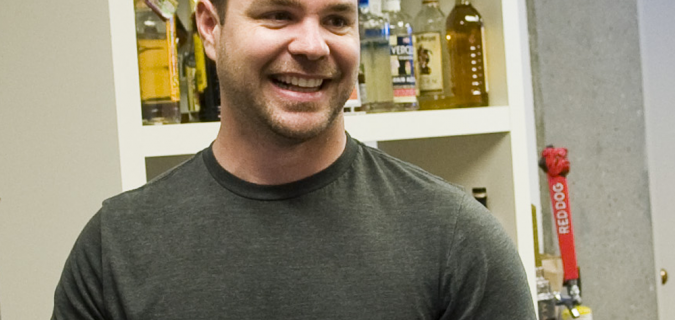Jim Belosic is the co-founder and CEO of Pancake Laboratories, a software company based in Reno, Nev. The company is best known for its flagship product, ShortStack, software that’s designed to help small business owners and designers create custom apps that harness the power of social media. ShortStack recently celebrated its second birthday; Pancake Laboratories has several new software products slated for release in 2013. Follow him @ShortStackJim.
Who is your hero?
My dad. Clichéd but true.
What’s the single best piece of business advice that helped shape who you are as an entrepreneur today, and why?
“Focus on the product!” These words of wisdom come from Ben Chestnut, the founder of MailChimp. On a visit to his offices, I asked him about marketing and PPC and the best places to advertise and he told me, “That doesn’t matter. Put your energy and money into making the product better and it will sell. The other stuff you can play with later.”
I hear all the time about startups that blow through initial investment money really fast — spending it on office space and advertising — and then have to raise more before the product is even close to ready. They should be pouring everything into fine-tuning the product.
What’s the biggest mistake you ever made in your business, and what did you learn from it that others can learn from too?
When I first started ShortStack I did not trust other people to help me. I never delegated because I thought that in order for everything — or anything — to be right, I had to do it myself. All my attitude did was put a cap on what I could produce because there are only so many hours in the day. When I hired my first employee, I had to train her so it didn’t save me any time — at least at first. I had to show her how to do what I needed done and then go back and fix what she had done. I kept at it though and she got better and better. Once I saw that I could delegate, I had confidence to do it over and over. The lesson: when you have people you trust, you can keep scaling.
What do you do during the first hour of your business day and why?
I come in and get my coffee and then walk around the office and say hi to everyone so I can get a sense of how things are going. I make myself available to help with anything my team needs help with, especially customer service issues. I don’t do any “real” work until the afternoon (including checking email), when I know that things are on track.
What’s your best financial or cash-flow related tip for entrepreneurs just getting started?
Don’t forget about taxes! When you’re pricing your products or services, and calculating revenue, make sure you build in the 30 percent for taxes. It’s so easy to look at the books and say, “My product costs 50 cents to make and I sell it for a dollar, so I’m making 50 cents”…. but not so fast. People tend to focus on shipping and payroll and rent but for some reason, taxes are an afterthought. If you put them first, you’ll have a more realistic picture of how your business is doing. And you’ll save yourself a lot of hassle down the road.
Quick: What’s ONE thing you recommend ALL aspiring or current entrepreneurs do right now to take their biz to the next level?
Learn the fundamentals of public relations. I’m talking about more than writing a press release. If you can’t afford to bring someone on to your team full time — which is ideal — hire a freelancer or a small agency. Why PR? Lots of entrepreneurs, once they have a product ready, think of advertising first. But to me this is like driving a gas-guzzler when you could drive a solar car instead. PR is like a solar car: It will take you a lot farther than a single tank of gas. There are articles we wrote years ago, as guest posts for blogs or for online publications, that still bring us traffic. An advertisement isn’t going to get you positioned as an expert.
What’s your definition of success? How will you know when you’ve finally “succeeded” in your business?
When we are able to repeat our process profitably for the third time I will know we are successful. We use the “dogfooding” model — we create an internal tool to use ourselves, fine-tune it, and then put it to market. When I see that this formula has worked for a third time I will be confident that the initial success is not a fluke. And I won’t worry that someone could flip a switch and make us obsolete.













